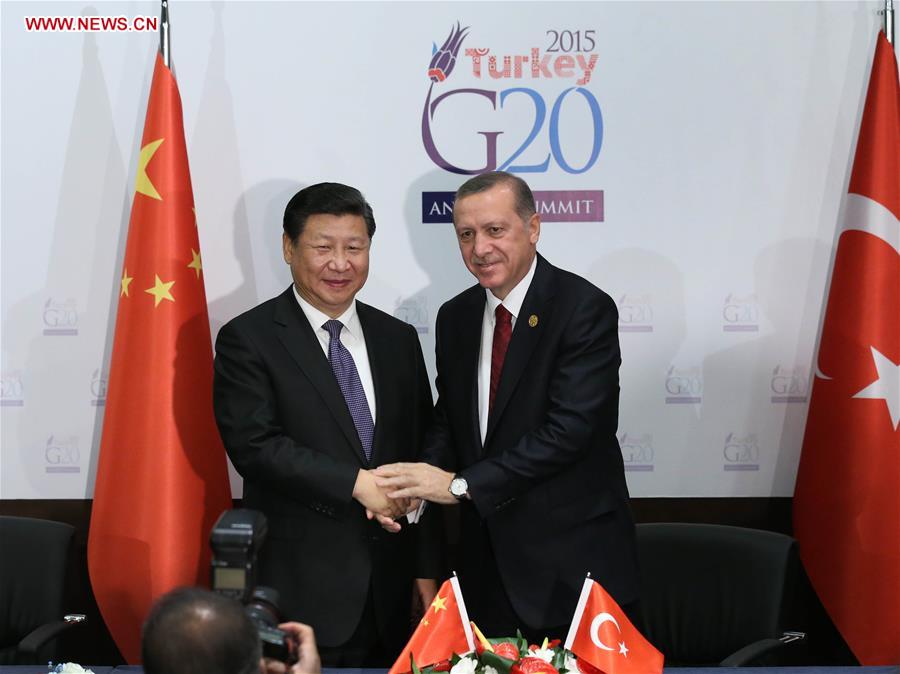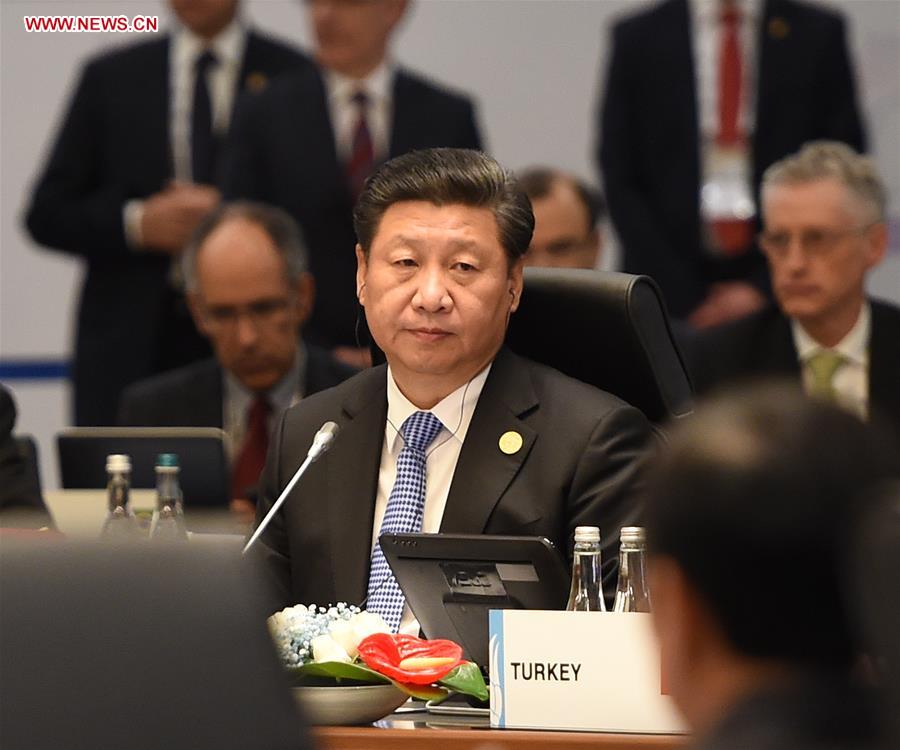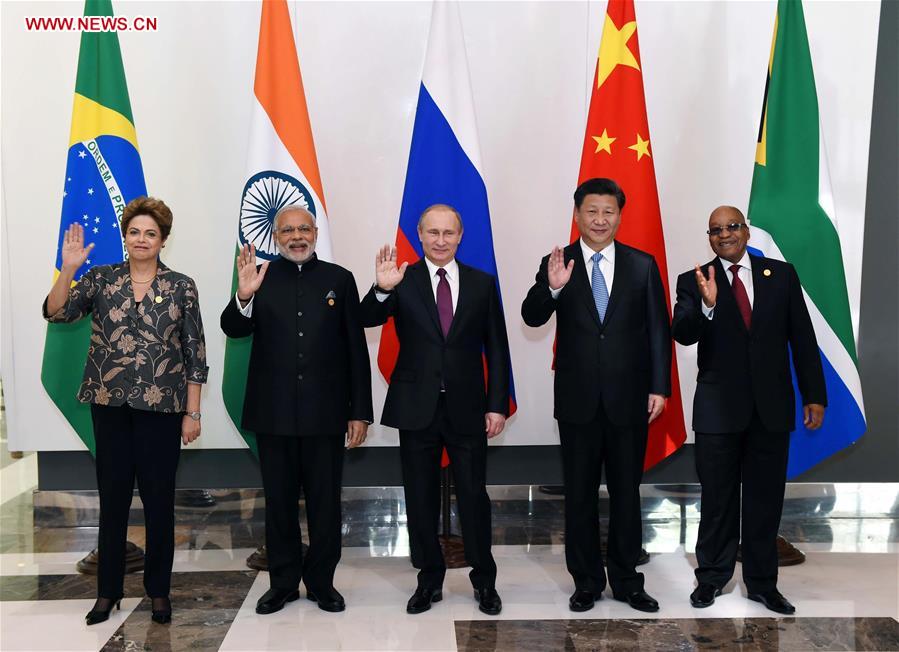By Shi Zehua, the G20 Research Center, Institute of International Relations, Beijing Foreign Studies University
BEIJING, Dec. 18 (Xinhuanet) — On December 1, Beijing started preparations to host next year’s G20 Summit. As the world’s largest developing country, Beijing must impress on the world stage.

Accordingly, Beijing had shouldered much of the responsibility for the world’s economic growth patterns. Between 2009 and 2011, China had accounted for more than 50 percent of overall economic growth worldwide.
But now, global economic growth rates have weakened; financial markets volatility has risen, trade and investment remain low, while high unemployment rates persist.
Such imbalances are plaguing national economic trends that prevent further macro-policy coordination among countries. Accordingly, the world economy is calling for new momentum and the 2016 G20 Summit will be highly-anticipated.
Beijing is hoping to capture a stronger voice in the world’s economy, to shift the out-dated patterns of world economy; to guide world economic development and political order.
China has already made adjustments to promote sustainable development, while continuing to act as the world’s economic engine of growth. Beijing endorses regional investment and infrastructure construction to inject new vitality to the globe.
Beijing is engaged in global governance to ensure fair, just, inclusive and orderly construction.
China’s economic growth and development help push away old patterns of the world economy.
China’s economic contribution to the world economy remains its first priority. China’s economy is undergoing structural adjustments. GDP (gross domestic product) growth rates are slowing down compared with double-digit growth rates in prior years.
However, China’s economy remains an important source of growth for the world. China’s contribution to world economic growth output has reached 30 percent.
In his speech at the G20 Summit in Turkey last November, Chinese President Xi Jinping said the national economy this year is expected to achieve a 7 percent annual growth rate, which is equivalent to the annual GDP of a medium-sized nation.

When taking total cumulative GDP figures into consideration, China’s economy is much larger than before. A 10 percent growth rate 5 years ago would be about 7 percent in today’s cumulative GDP numbers.
Former Canadian Deputy Finance Minister Thomas Bernes held similar views. He said that 6 to 7 percent growth rates of China’s economy today would actually represent a 10 percent growth rate five years ago.
In order to promote sustainable growth in “the 13th Five-year Plan”, Beijing has launched policy initiatives to deepen reform, propose innovations, enhance coordination, go green along with opening and sharing its concepts.
The five development philosophy would alter the quality of economic development. Meanwhile, Beijing has proposed to double the size of its GDP and per-capita income levels for urban and rural Chinese residents from 2010 figures by the year 2020.
China supports further cooperation.
As China strengthens its international status, Beijing is transitioning from being a follower to acting as a pacemaker by learning to adapt to international rules and to establish new rules.
Meanwhile, developed economies rely on a traditional mechanism for global economic governance to hold on to their international rule-making powers. Such inequality has harmed development.
China, along with other developing countries, favor changing the old system to establish new institutions and to share a stronger voice in the international system.
Each year before the G20 leaders summit, China and BRICS (Brazil, Russia, India, China and South Africa) member countries hold a pre-session to coordinate on issues of common concern.

China’s “Belt and Road” initiative could expand economic activities in Asia, Europe and elsewhere. The Asian Infrastructure Investment Bank (AIIB) is expected to enhance infrastructure investments in neighboring countries.
Beijing has launched the Silk Road Fund to forge better economic and diplomatic relations with emerging countries and to boost economic development opportunities.
China seeks reform as golden key.
Beijing supports a new global system, and the G20 would integrate China’s wisdom and philosophy.
China has long advocated for win-win cooperation within the G20 framework to strengthen international relations. Promoting global governance via co-discussing, co-construction and sharing, ideas in-depth can be the solution.
The theme of 2016 China Summit will be “Building an innovative, invigorated, interconnected and inclusive world economy.” Innovation is the engine for sustained economic growth.
Beijing promotes innovation-driven development in science and technology; developing institutional mechanisms and business models as new sources of growth.
China has proposed to increase endogenous growth that focuses on quality and efficiency. G20 countries advocate for comprehensive inter-operability and close interactions to overcome challenges, gather consensus, and build a global community of destiny.
Creating more inclusive growth can support practical actions to reduce inequality in global development. People all over the world should share in the dividends.
Next year’s Summit will also address International Monetary Fund (IMF) quota and governance reforms, and expansion of its special drawing rights (SDR) basket of reserve currency.
The World Bank supports green finance, while coordinating on global value chain development for an inclusive development philosophy.
By promoting reform in the emerging markets and endorsing their voice in the world system could boost global economic growth rates alongside new development concepts, which will provide intellectual support for the world economy.